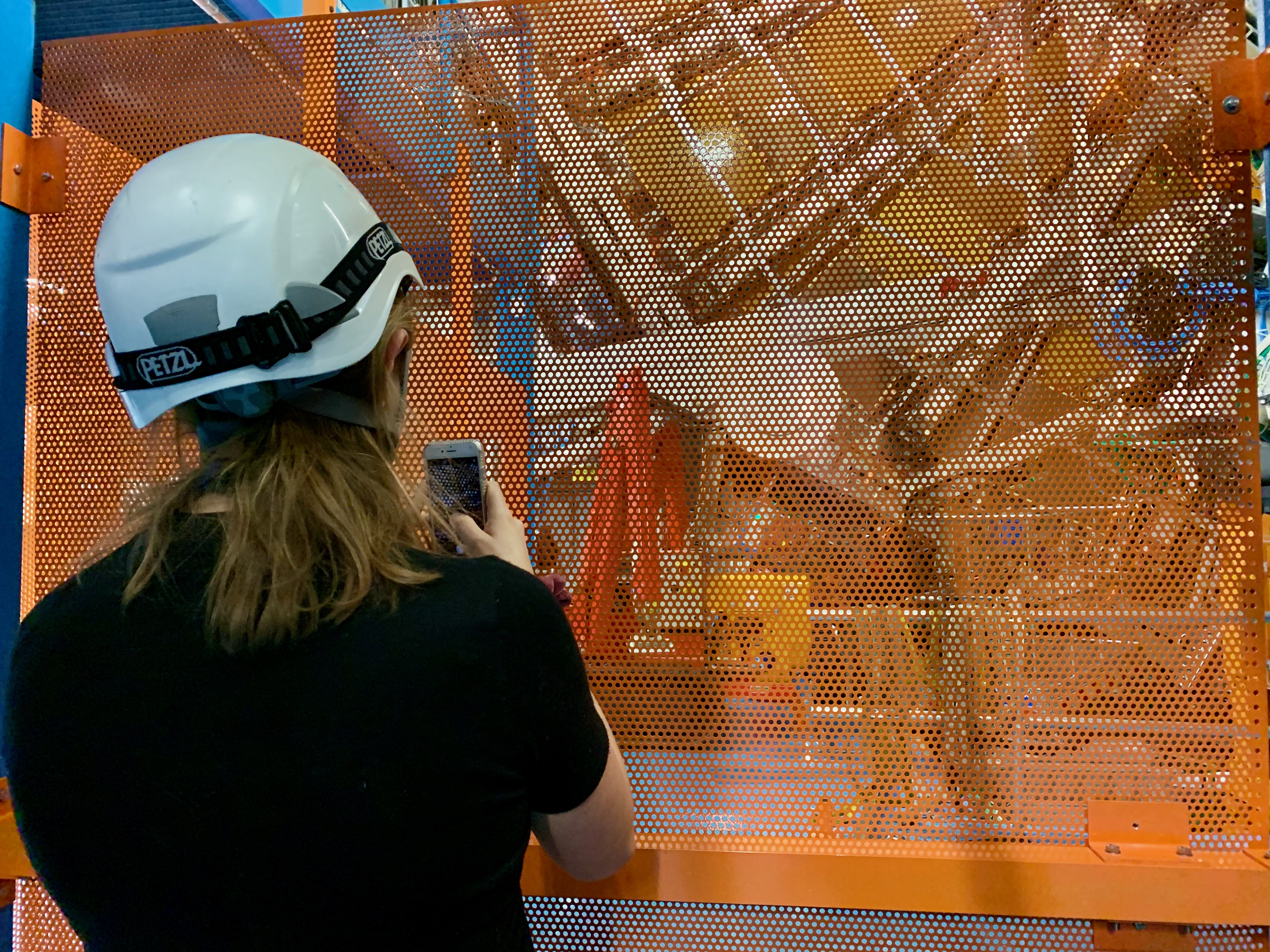BOOST outreach and Particle Fever
15 August 2015 | By
Conferences like BOOST, which my colleagues Cristoph and Tatjana have written about already, are designed to bring physicists to think about the latest results in the field. When you put 100 experts from around the world together into a room for a week, you get a fantastic picture of the state of the art in searches for new physics and measurements of the Standard Model. But it turns out there’s another great use for conferences: they’re an opportunity to talk to the general public about the work we do. The BOOST committee organized a discussion and screening of the movie “Particle Fever” on Monday, and I think it was an enormously successful event!
For those who haven’t seen it, Particle Fever is excellent. It is the story of the discovery of the Higgs Boson, and its consequences on the myriad of theories that we are searching for at the LHC. It presents the whole experience of construction, commissioning, turning on, and operating the experiments, from the perspective of experimentalists and theorists, young and old. People love it – it has a 95% rating on Rotten Tomatoes – and nearly all my colleagues loved it as well. It’s rare to find a documentary that both experts and the public enjoy, so this is indeed a real achievement!
On an experiment as big as ATLAS, you quickly become extremely aware of how much you depend on the work and experience of others, and on the decades and centuries of scientists who came before us. Doing science means contributing to this shared knowledge.
Getting back to BOOST, not only did we have a screening of the movie, but also a panel discussion where people could ask questions about the movie and about physics in general. One question that an audience member asked was really quite excellent. He asked why physicists think that movies like Particle Fever, and events like this public showing, were important. Why did we go to the trouble of booking a room, organizing people, and spending hours of our day on a movie we’ve already seen many times before? And let’s not forget that David Kaplan, a physicist and a producer of the movie, spent several years of his life on this project full time. He essentially gave up research for a few years in order to make a movie about doing research – not an easy task for a professor!
So why do we do it? Why is Particle Fever important?
The answer, to me, is that we have a responsibility to share what we know about the Universe. We study the fundamental nature of the Universe not so that we as individuals can understand more, but so that humanity as a whole understands more. On an experiment as big as ATLAS, you quickly become extremely aware of how much you depend on the work and experience of others, and on the decades and centuries of scientists who came before us. Doing science means contributing to this shared knowledge. And while some details may only be important to a few individuals (not many people are going to care about the derivation of the jet energy scale via numerical inversion), the big picture is something that everyone can appreciate.
And Particle Fever helps with that. The movie is funny, smart, and understandable – all things that we strive to be as science communicators, but which we sometimes fail at. Every particle physicist owes David Kaplan and the director Mark Levinson a tremendous debt, because they have done such a tremendous job of communicating the excitement of fundamental knowledge and discovery. CERN has always sought to unite Europe, and the world, through a quest for understanding, and Particle Fever helps the rest of the world join us on that quest.
Conferences like BOOST are a great time to focus on the details of our work, but they’re also an opportunity to consider how our physics relates to the rest of the world, and how best we can communicate our understanding. Particle Fever has made me realize just how much work it takes to do a really wonderful job, and I’m extremely happy that such a great guide is available to the public. With any luck, we’ll have more movies coming out soon about the discovery of supersymmetry and extra dimensions!





